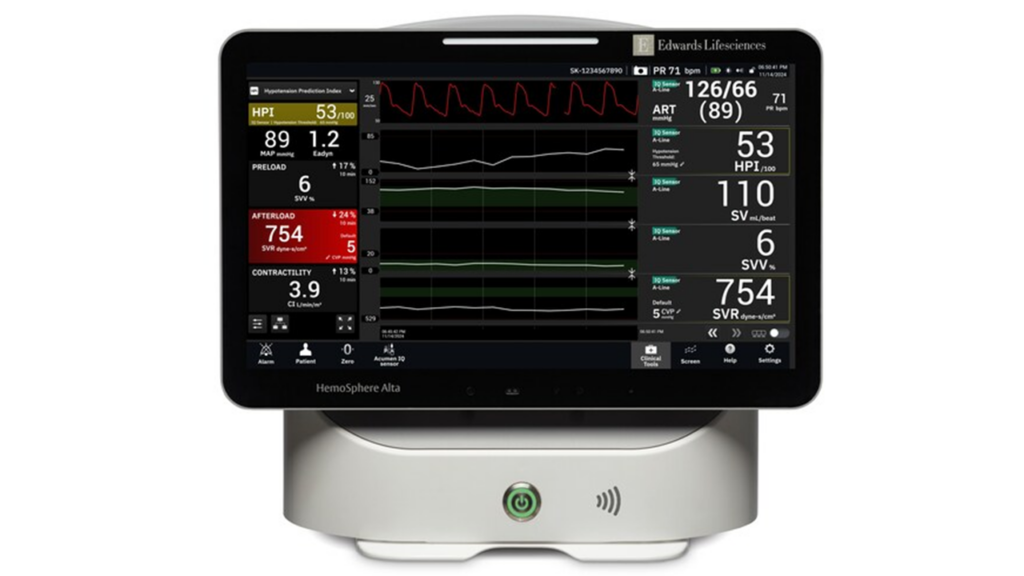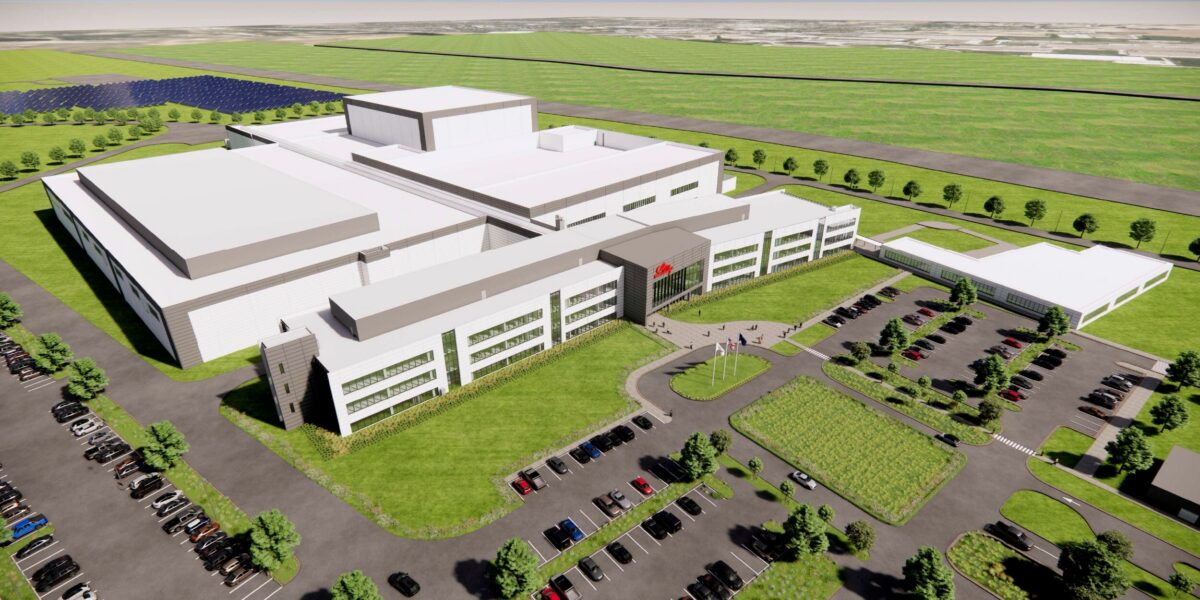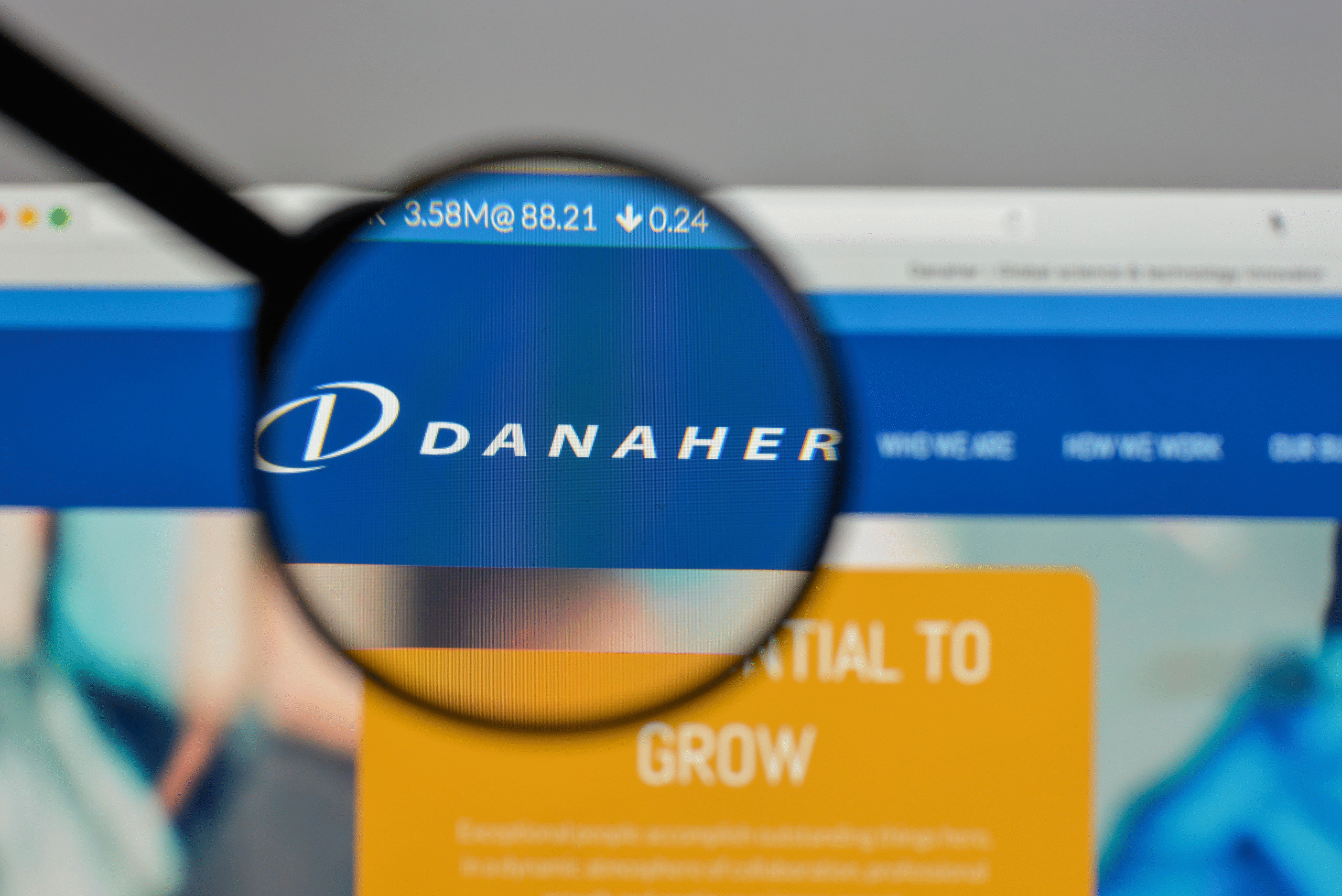BD has launched its most advanced hemodynamic monitoring platform to date: HemoSphere Alta.
Designed for operating rooms and intensive care units, the system uses AI to help clinicians detect blood flow instability before it becomes life-threatening.
BD’s Advanced Patient Monitoring unit marked this first major release since acquiring Edwards. This release expands the company’s reach into smart, connected care technologies that combine real‑time clinical data with predictive insights.
In recent market forecasts surrounding AI expansion in healthcare, the AI diagnostics market was predicted to grow from $1.6 billion in 2024 to over $8.5 billion by 2033, with predictive healthcare AI nearing $48 billion by 2030. This growth is fueled by rising demand for digital biomarkers and AI-supported clinical decision-making.
At the center of HemoSphere Alta is the new Cerebral Autoregulation Index (CAI), a parameter that shows whether the brain can maintain stable blood flow during pressure changes — a threshold that varies for each patient and often shifts during surgery or illness. The monitoring system calculates the index using a noninvasive ForeSight IQ sensor on the forehead paired with an Acumen IQ arterial line sensor.
Together, they provide a dynamic view of brain perfusion, guiding clinicians in setting individualized blood pressure targets.
The platform also includes the Hypotension Prediction Index (HPI), a machine-learning tool trained on thousands of data points to forecast low blood pressure events. Multicenter studies have shown HPI can reduce the severity and duration of hypotension, a known contributor to post-operative complications.
User experience was a design priority. HemoSphere Alta features a 15-inch high-resolution touchscreen with split-screen views and customizable layouts. Voice and gesture commands allow for sterile, hands-free interaction, helping clinicians stay focused during critical procedures.
Related: AZmed’s AZchest Receives Two FDA Clearances for AI-Powered Software Applications
AI in Healthcare: Current Insights
The broader healthcare field is experiencing significant momentum in AI‑enhanced monitoring. For instance, Atropos Health and xCures have partnered on AI‑based real‑world evidence tools. And at Arab Health 2025, Philips showcased its cloud‑based, AI‑driven patient monitoring and diagnostic solutions. In addition, Leidos invested $10 million in the University of Pittsburgh’s AI diagnostics research. Moreover, Renovaro teamed with Nebul to support deep‑learning biomarker discovery.
In terms of larger trends in AI adoption across healthcare, Deloitte’s 2024 industry outlook highlighted generative AI as a potential co-pilot for clinical workflows, care coordination and early detection. Though generative AI tools differ from platforms like Alta, it’s interesting to note that they represent a growing frontier, with the market expected to exceed $10 billion by 2030.
As AI tools grow more advanced, public perception continues to evolve. Pew Research reports that 60% of US adults would feel uneasy if their providers relied heavily on AI for their care, and 75% worry that providers may implement AI too quickly without fully understanding its risks.
Even so, 38% believe AI could improve health outcomes. These findings underscore the need for transparency, robust oversight and active clinician involvement in decision‑making.
BD’s launch could cascade a broader shift to reimagine clinical decision-making in critical care through AI-enabled tools.
If you want your company to be featured on Xtalks.com, please email [email protected].












Join or login to leave a comment
JOIN LOGIN